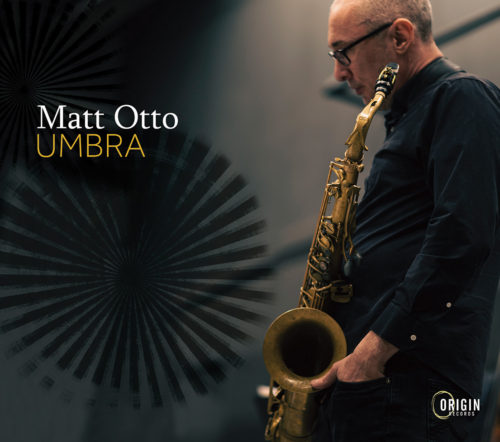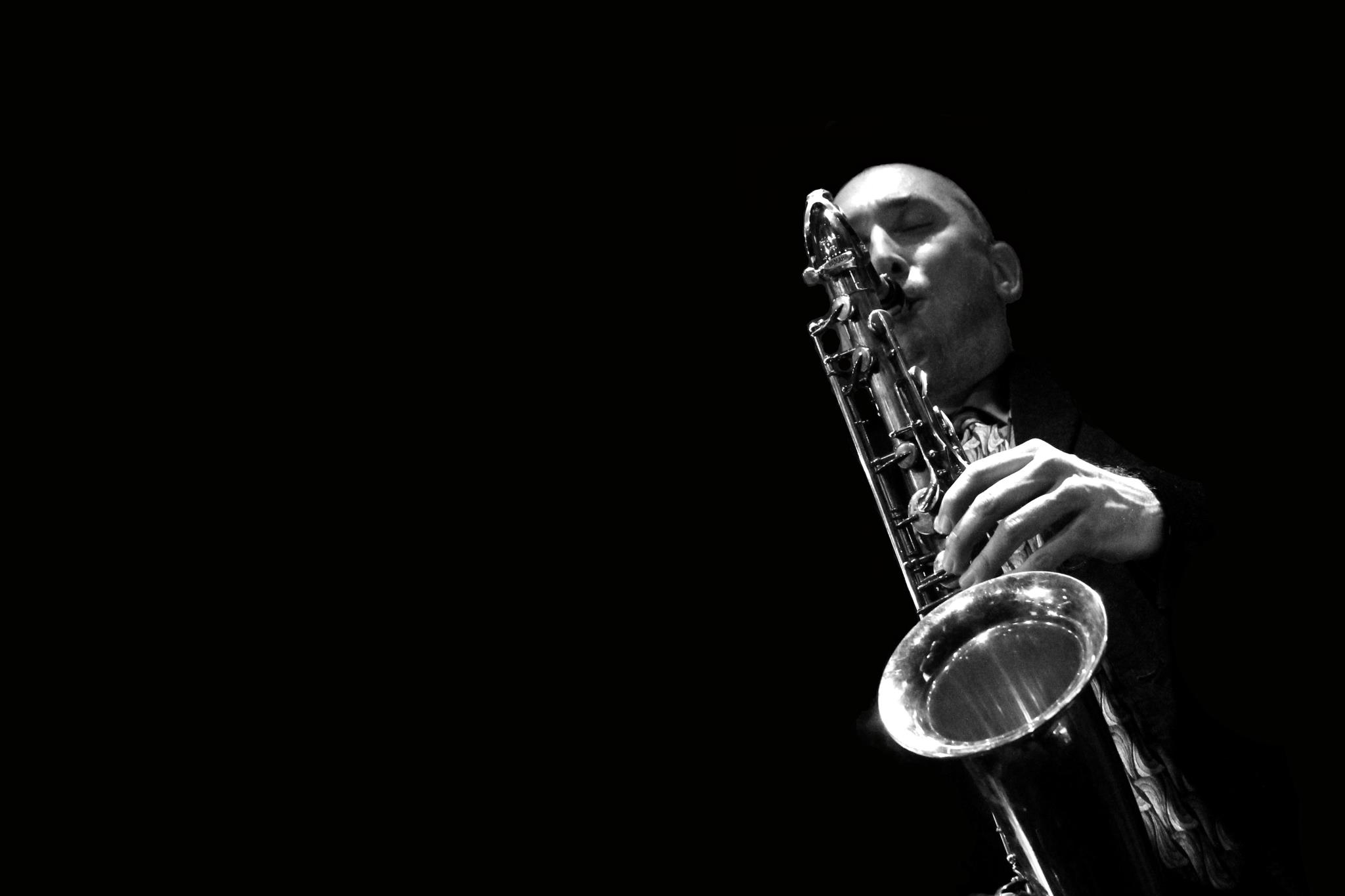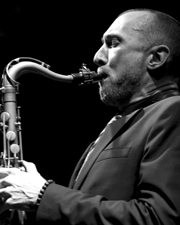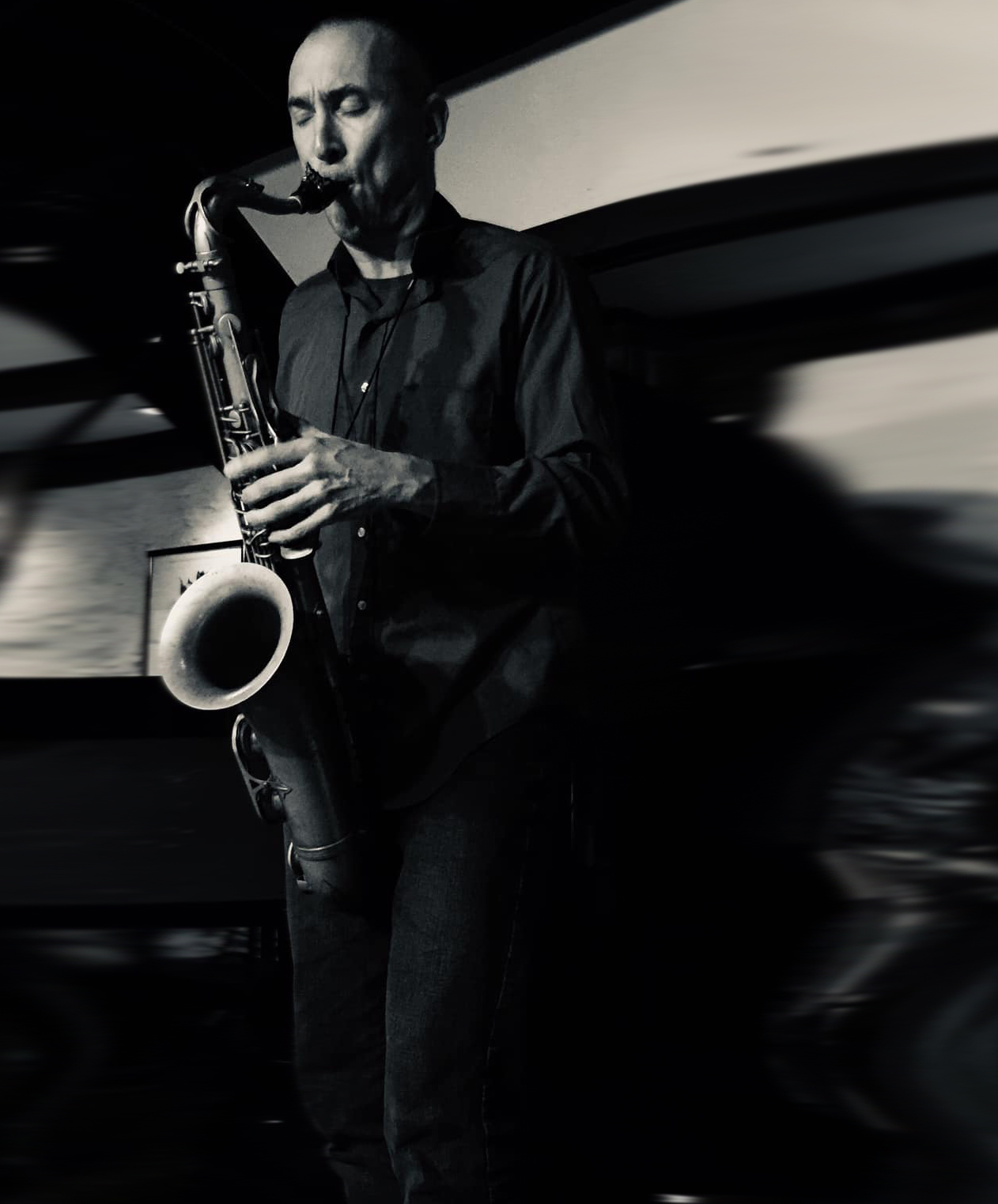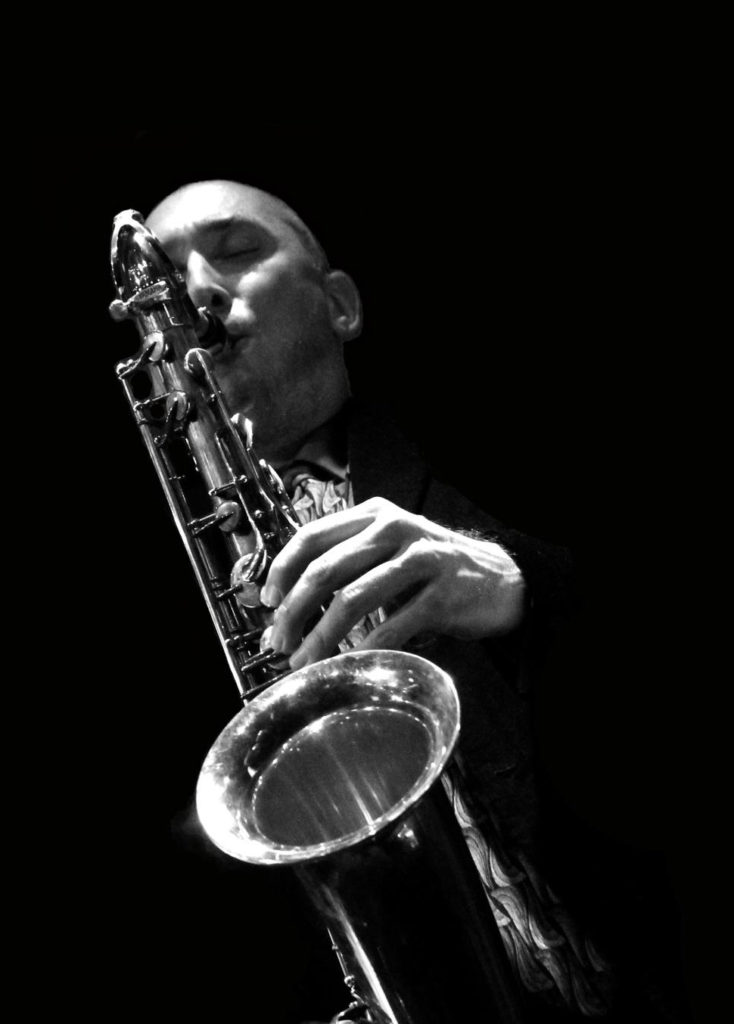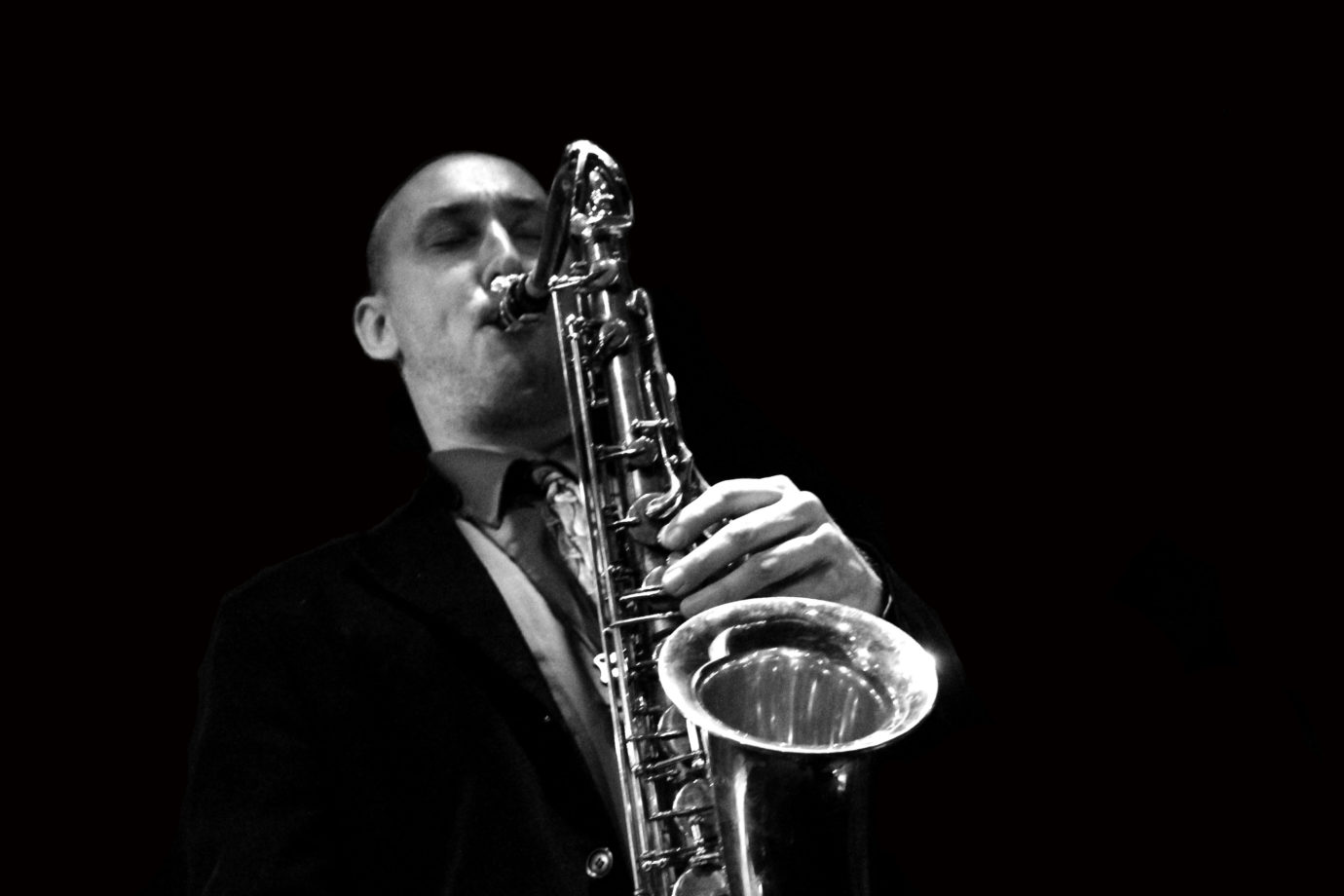Another CD is now out on Origin records.
“Otto is a true original in his compositional efforts. He sounds like no-one else. Free? Sort or, and laid back, with a beautiful sax tone. It sounds like he is laying out his own personal truths…The music says Matt Otto is an artist with a vision. He has brought that vision into sharp focus here.” Dan McClehaghan, All About Jazz.
“Otto has already learned what NOT to play, which for some is a lesson never appreciated.” George W. Harris, Jazz Weekly.
“…begging positive comparison to Sonny Rollins landmark recordings from the 50s and 60s as Otto mines the spare format for maximum emotion…The more I listen, the more I love this.”, Russell Perry, WTJU
Liner Notes by Gary Fukushima:
Matt Otto – Umbra
In his 30-plus years in music, Matt Otto has, in addition to mastering improvising and training his ear to near-perfection, learned to write incredibly complex compositions, challenging in every musical aspect: melodic, harmonic, rhythmic. Yet even now, his composing continues to evolve.
“I feel it’s less evolution than going back to my roots,” the tenor saxophonist contravenes. “I started out being a mostly free player, and I’m missing, as I get older more, of the freedom that we do get on certain tunes… I just felt the need to write with more open harmony and less restriction.” It’s a shifting of philosophy that shadows a direction taken sixty years ago by many notable saxophonists: Dolphy, Coleman, Coltrane, Ayler, Shepp, Braxton, Dewey Redman, Evan Parker, all of them shading the rich harmonic tradition of bebop in favor of simplified modal progressions, or even eschewing harmony altogether in a full embrace of free-jazz. Perhaps Otto has reached, at his advanced stage of learning from those towering masters, an inflection (or reflection) point of understanding that the open roads can lead to more inspired paths of possibility.
That is not to say this is a 1960s-era free-jazz album. Otto has written nine original pieces, all with distinct melodies and yes – harmonies, placed within a standard-tune formal structure. “I still enjoy keeping the form in general,” he explains, “because I think it helps build energy as a collective unit of people. The form gives you an anticipation of what’s to come.”
Otto has indeed collected an energetic unit of people, all current or previous members of the vibrant jazz resurgence in Kansas City since Otto (maybe not) coincidentally moved there in 2009. He played his first gig there with bassist Jeff Harshbarger, who can play a range of music from classical bass to free jazz. Otto often pairs him with similarly versatile drummer John Kizilarmut, noting that “they play great together…their energetic tension has the kind of urgency about it which I love to listen to when I’m improvising.” That duo featured heavily in Otto’s last album, Kansas City Trio, and they with Otto reprise their trio on four of the album’s selections.
Keyboardist Matt Villinger provides, on Rhodes electric piano, astute chordal realizations of Otto’s minimal yet essential harmony, while adding a few electrifying solos of his own. Eritrean trumpeter Hermon Mehari was in his teens when he first met Otto in Kansas City, before going on to win the 2015 Carmine Caruso International Trumpet Competition, en route to a buzzy international jazz career based in Paris. Guitarist Alex Frank, the youngest of the group but a colleague of Otto’s at the University of Kansas, brings a lot of free energy as well as an edge, in the vein of the 70s-era fusion sound Otto was looking for.
Collectively, Otto and his bandmates apply their combined experience and skill to translating these open harmonic forms into spontaneous reimaginations. Otto encourages those liberties even through his notation, occasionally adding an “f” to a chord symbol, such as “D7f.” “It functions as a D7, but it could be any kind of D7 (with possible alterations),” he explains. This happens on “Prez,” written for Lester Young. “I was trying to write a song that had major seventh intervals but that sounded like a blues,” Otto says, arranging those intervals between saxophone and trumpet. The two horns interact in a different fashion on “Esthesis,” where their melodies overlap along triadic structures gravitating toward an inevitable tonic resolution anchoring to a pedal point in the bass. “I tried to use every single major triad over the pedal, so it just keeps moving up and down by half steps until it ends up at the top again,” he says.
On “Mousai,” Otto’s approach is to create a melody using a “tetrad,” a four-note grouping that is then reharmonized in the bass to form different chords. For “Melisma,” Otto adds a fifth note to his melodies, reharmonizing that pentatonic scale in a manner that was arguably utilized by Wayne Shorter, allowing for both bluesy and more esoteric solo interpretations.
“Umbra,” the title track of the album, is a simple melody in G major, or so it seems. Otto reveals that the melodic contour “goes either up by a sixth or down by a third diatonically…a cycle-six through the major scale.” Originally 64 bars long, he realized he had overwritten the tune by 57 bars and removed them, leaving only a seven-bar melody. “It’s so short, I don’t know if it’s really a tune,” he remembers thinking in the studio. “So…let’s all play on it at the same time and not make it about solos.” The sonic imagery of the players shadowing each other with the same short melody was the impetus for the title, another word for “shadow.”
The other compositions are all similarly titled, cleverly or poignantly, as in the case of “Hawk,” not for Coleman but for Don Hawkins, an influential early saxophone teacher for Otto, who penned the tune the same week his erstwhile mentor passed. “Wanjiku” is the heroine from the Kenyan novel “Petals of Blood,” a favorite book of Otto’s. “Paw Paw” is named after the Missouri state fruit, even though Otto had written that heretofore unnamed tune a decade before he moved to the Midwest. He unearthed it, along with “Wanjiku,” to play specifically with his trio of Harshbarger and Kizilarmut. These particular tunes, Otto muses, are “maybe not for a whole band, but with a trio, there’s enough ambiguity to make it have more depth in a way.”
The way these vignettes in Umbra work as a whole is not just from the harmonic ambiguity that leaves them open to individual interpretation, but from the retaining of fundamental elements of every good composition: a sense of direction and purpose. Also possessing those senses enables the players to find their way forward together, despite the divergent paths they could take to get there. “The ear, you know, is a compass,” Otto muses. “You put yourself in a puzzle and try to solve it with your ear, and your ear is all-encompassing in terms of what you are as a musician.” And with one’s ears as a guide, the solution is clear, regardless of how little or how many clues the composition reveals.
Gary Fukushima
June 2023, Los Angeles, CA

